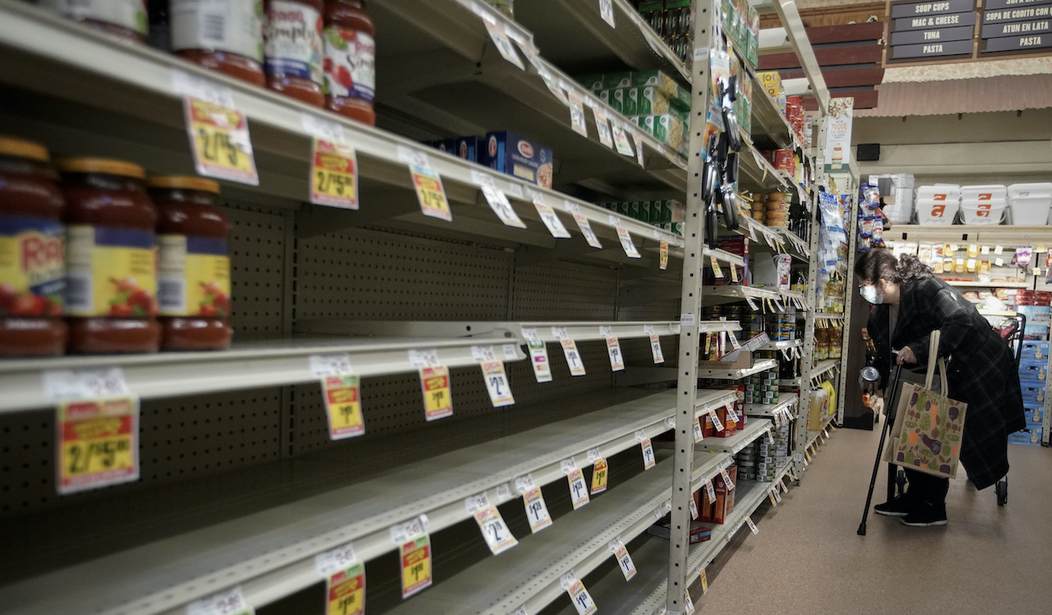I’ve been involved in the restaurant business for most of my life, and through the years, I have seen a lot – recessions, labor shortages, product scarcities, and changes in culture both internally and externally. But I have never seen anything like the current condition of the industry’s supply chain.
From toilet paper to lumber, the supply chain crisis has been at the forefront of Americans’ minds for months. As a restaurateur who has an inside perspective and has personally observed its repercussions, I am compelled to speak honestly into the crisis at hand.
We will never fix the supply chain issue until we first tackle the labor shortage.
What is the Problem
We are playing the blame game. The barges sitting off the coast of California have led to the common misconceptions that shortages hail from products made in other countries or that supply chain interruptions are state-specific. However, this is rarely the case. The supply chain crisis is, in fact, a nationwide issue.
Even the Federal Trade Commission (FTC) recognizes the reality America is facing. The FTC recently initiated an inquiry ordering nine large wholesalers, retailers and consumer goods suppliers to provide detailed information to help uncover any potential causes behind the supply chain disruptions to discover more direct root causes for the problems. I applaud the FTC for this effort but firmly believe we must not neglect the most critical element in all of this if we are to solve our supply chain issue - the labor force crisis.
Since September 2021, 4.4 million Americans have quit their jobs. Breaking down this statistic a little more, one in four workers have left their position in the past year. With the COVID-19 pandemic, people became more aware of their burnt-out lifestyles and got used to more flexibility with the option of working from home. Across the board, people experienced a wake-up call that there are alternate work routines that may be better options than returning to the daily grind.
The restaurant industry has perhaps been one of the greatest victims of this crisis. “Now Hiring” signs are posted on nearly every door, bulletin board and cash register at restaurants and fast food places nationwide. According to The Bureau of Labor Statistics, the accommodation and food services industry has the highest quit rate at 6% and in October of 2021 had 1.59 million job openings.
Recommended
I have seen this first hand. Plenty of restaurants face frustrations that come with the labor deficit. All positions have been a struggle to fill — from waitresses to line cooks and even managers. While some people are applying online, they’re still not showing up for the interviews and paperwork. In fact, a few months ago, we received over 150 online applications, but only eight people came in to interview and only two showed up to work. We’ve offered employees increased salaries, sign-on incentives, and flexible schedules (among other benefits) as motivation, but still, people are not taking the positions.
I know I am not alone in this problem. When I speak to leaders at my manufacturing plants or distribution centers, they, too, are experiencing great labor shortages that are only contributing to the domino effect on the supply chain. It is not just about having labor to make supplies, but this shortage impacts finding workers to fix broken machinery, drivers to transport finished products, and warehouse operators to unload or deliver materials. For example, the carry-out cups for our soup have been out of stock since November. Over a dozen dates have been promised for when they will arrive yet, they still are failing to get them produced.
Finding the Solution
It is essential we learn how to discern between what is truth and reality. I recognize the misinformation spread by some news outlets, social media and politicians who continue to instill fear in the hearts of the American public. This is why it is critical that people from inside our industry share the reality of what is really happening with the hopes that we can eventually play a part to solve and overcome the complications.
Many business leaders like myself are doing whatever it takes to keep operations running smoothly from unloading trucks to stocking up on available products, when possible. And while most customers will never see these behind-the-scenes efforts, it is only a matter of time until these issues become evident on a consumer level, if they haven’t already. It is only then that some will pay attention to the crisis at hand.
We must stop the blame game of pointing fingers at industries for not paying enough or laborers who “don’t want to work.” Certainly, all industries should pay a fair wage and individuals should be motivated to contribute to society, but our government should also be strategizing on incentivizing people to return to work so we can get the products back on the shelves. Once the labor crisis is fixed, the supply chain will shortly follow.
As far as what we can do as a business, I’ve come to know the importance of balancing your business needs with the needs of others, including employees. No matter how dire the circumstances get, value can be found in caring for those in your company and remember to always act with kindness.
Most of all, I encourage any who are in this industry as a buyer, manufacturer or distributor to join in the conversation and spread the truth of the matter. We’ve got a lot of work to do in this country but through joining forces we can make a difference and get to the bottom of the crisis.
Peter Demos is the author of Afraid to Trust. He’s a restaurateur and president and CEO of Demos’ Brands and Demos Family Kitchen.

























Join the conversation as a VIP Member